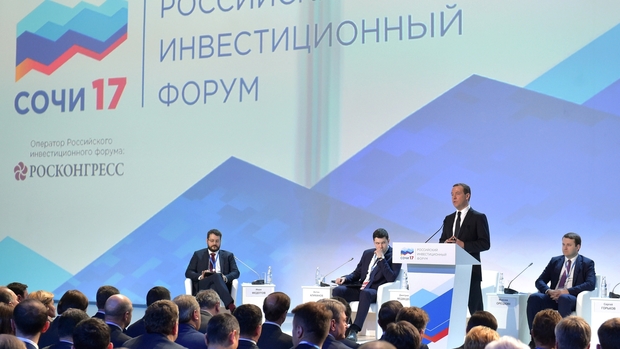Russian economy demonstrates growth including non-energy sectors
Russia is now out of the longest recession in two decades, considers Bloomberg. According to revised calculations by the Bank of Russia's Research and Forecasting Department, the economy's quarterly growth has been positive since the first quarter of 2016 (partially due to a reclassification of military spending). Nonetheless, a significant growth is impossible without economic reforms.
The recovery of oil market due to a global agreement on production cuts helped the economy, but other sectors also showed improvement. ''In 2016, growth in non-energy sectors was a nice surprise,'' says Vladimir Miklashevsky, a senior strategist at Danske Bank A/S in Helsinki. ''For changes in the structure of the economy, growth in non-energy sectors is more important for better long-term prospects than the increase in oil prices and production.''
As for economic sanctions, which were meant to undermine the country's wealth, they finally turned to be an advantage for Russian producers as they reduced foreign competition. Russian officials state that the economy has become used to sanctions and can carry on just fine. However, Bloomberg believes that ''the economy would undoubtedly get a lift if the Trump administration decides to ease the restrictions the government has already imposed''. The majority of economists surveyed by the media considers that the ruble would rise in value by 5-10% in such a case as well as GDP, which could gain extra 0,2% in 2017 and 0,5% in 2018. Earlier, the International Monetary Fund stated that the international restrictions might have initially reduced real GDP by 1-1,5% and forecasted a cumulative loss of 9% of economic output in the medium term.

Russia's consumer sector is recovering a bit slower, but retail sales have curbed their decline, according to the Federal Statistics Service. This is partly a merit of the Bank of Russia and its ambitious inflation targets. In 2016, inflation slowed by 5,4%, thus reaching its lowest level in 15 years. Moreover, the Central Bank is determined to achieve a 4% target by the end of this year.
Overall, growth forecasts are still modest. The Central Bank's Governor Elvira Nabiullina thinks that Russia needs reforms to unlock further possibilities. Otherwise, the development will unlikely exceed 1,5-2% while President Putin aims at accelerating the growth to match that of the global economy, which means at least additional 1%. The Ministry of Economic Development was given a task to prepare a plan for reaching this aim by 2019.